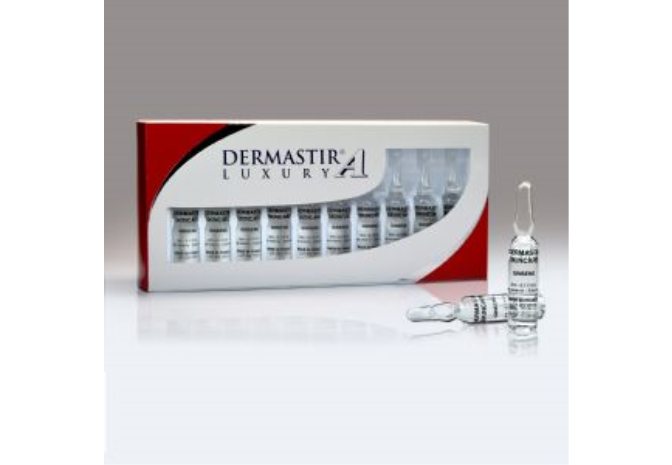MatchProduct
Dermastir Ampoules - Chinese Mandarin Care
Brief Description
Chinese Mandarin (citrus reticulata) is native to China; the fruit of the Mandarin tree was a traditional gift offered to the Mandarins, hence the origin of its European name Tangerine. The main difference between mandarins and tangerines is that tangerines grow in November where as mandarins grow in February. The names Mandarin and Tangerine are both commonly used to describe the same essential oil; Mandarin is the common name used in Asia whereas Tangerine is the name used in America.
Product Details
Mandarin has been used in ancient China for centuries
Mandarin apart stimulates the micro-circulation, the lymph and it has also properties that stimulate the synthesis of collagen fibres. In unhealthy tissue, the micro-circulation of both blood and lymph has been disrupted by constricted and loss of dermal capillary networks. Engorged fat cells causing decreased circulation in the unhealthy tissue contributes to an inflammatory response. This causes structural changes in subcutaneous fat tissue and the surrounding matrix of collagen fibres reflecting the expansion of adipose tissue into the dermis and the stiffening of collagen fibres that draw in anchor points causing dimpling in the dermis and epidermis.
The Characteristics of Mandarin
The Mandarin is a small, evergreen tree which grows up to 20 feet in height; it has small orange-like fruits (not to be confused with those of the Orange tree), fragrant flowers and glossy leaves. The Mandarin is of the Rutaceae plant family and was firstly brought to Europe in 1805, and then to the USA in approximately 1845 (where it became known as the Tangerine).
Product Selling Benefits
The Technical Differences Between Mandarin and Tangerine
The differentiation between Mandarin and Tangerine is shown in where the Mandarin is produced today. Italy, Cyprus, Spain, Greece, Brazil, the Middle East and Algeria produce the Mandarin; the US states of Florida, Texas and California, in addition to Guinea, produce the Tangerine. Technically, the Tangerine is larger and rounder than the Mandarin and is more yellow in colour; however, both Mandarin and Tangerine oil are commonly used for the same purposes in aromatherapy, in addition to being sold as one and the same.
The Chinese mandarin extract is a white active serum that can be applied not only on the body but also on the face. Since Chinese mandarin is extremely unstable it is presented best in glass ampoule forms. Dermastir Chinese mandarin ampoules by Alta Care Laboratoires today are leaders in the presentation of this Chinese mandarin in ampoule form.

Products Specs
| Seller Objective: | N/A |
| Patent / IP Status: | Copyright/Trademark |
| Inventory in Stock: | In stock and available for sale |
| Number of Units in Stock: | 501 - 1000 |
| Suggested Retail Price: | $144.50 |
| Wholesale Price: | $72.25 |
| Estimated Cost/Unit: | $72.00 |
| Minimum Order/Units: | 500 |
| Prior Sales Activity: | N/A |